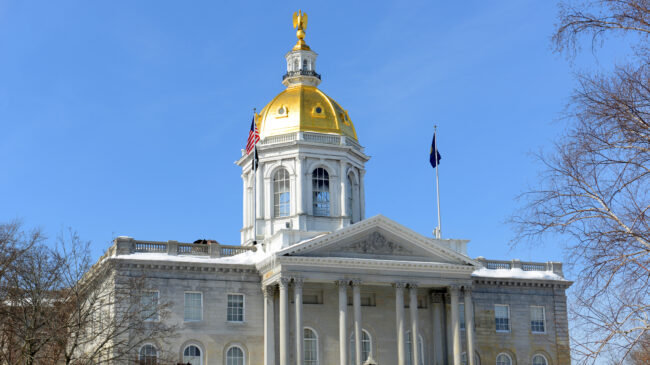Welcome to Reason Foundation’s newsletter on psychedelics policy. This edition covers:
- A new medical psychedelics model similar to the retail system of medical cannabis
- In-depth look at Ohio’s attempt at ibogaine research
- The state roundup
- LSD drug formulation gets breakthrough status by FDA
Model for direct-to-consumer medical psychedelics
As more states consider legalization, Reason Foundation fellow Greg Ferenstein has outlined a new model of psychedelic legalization that licenses individuals to purchase psychedelic medicines directly rather than licensing professional facilitators who dispense these medicines to patients only for consumption in a supervised facility. This alternative offers policymakers a model that would reduce costs and increase consumer access to psychedelics by reducing the overall regulatory burden.
New Hampshire Rep. Kevin Verville (R-Rockingham County) introduced House Bill 1693, which is based on Reason’s model and would mimic the state’s existing medical cannabis system to set up dispensaries for psilocybin, LSD, and mescaline. The New Hampshire bill “aims to responsibly legalize personal possession of psychedelics. It offers the legalization of both synthetic and botanical psychedelics, flexible qualifying conditions, and legal protections for license holders, providing a unique framework for psychedelic therapy that is cost-effective and accessible.” The paper “A policy framework for personal psychedelics licenses” is here.
Ohio explores ibogaine as a tool to fight opioid addiction
After championing a Kentucky effort to launch clinical trials of ibogaine through a public-private partnership, Bryan Hubbard was dismissed as chair of the Kentucky Opioid Abatement Advisory Commission. Subsequently, Hubbard launched a new ibogaine study project in Ohio with a nonprofit called the REID Foundation, which explores mental health issues through arts and emerging therapies.
Relatedly, Reason Foundation’s Madison Carlino’s new report looks at the safety and efficacy of ibogaine to treat opioid addiction and why policymakers should enable more ibogaine as a potential alternative treatment.
State roundup
There’s been a flurry of bills in multiple states, including Arizona, New Jersey, and California, that would authorize regulated access to professionally facilitated psychedelic experiences and decriminalization. In terms of becoming law, some bills, like New Jersey’s, have the blessing of key political leadership, such as New Jersey state Senate President Nicholas Scutari (D-Union County).
In Massachusetts, a ballot initiative that would decriminalize home cultivation of psychedelic plants and create a regulated framework for professional services is moving forward.
In-depth updates on these and other developments are available in our most recent state roundup of psychedelics policy.
LSD drug formulation given ‘breakthrough’ designation by FDA
MindMed recently received a rare “breakthrough” designation on a unique formulation of LSD for generalized anxiety disorder from the Food and Drug Administration (FDA). This breakthrough status grants manufacturers an accelerated pathway through the approval process. MindMed will now see an accelerated development timeline and perhaps a more favorable probability of approval should phase III trials eventually confirm their compound’s efficacy.
The FDA also granted breakthrough status to drug sponsor Cybin for a modified version of psilocybin for major depressive disorder (two other sponsors, Usona and Compass, have also gotten breakthrough status for a psilocybin formulation).
There is also an effort in the U.S. Senate to automatically reduce penalties and barriers to scientific research for any treatment that receives breakthrough status. If such a bill passes, LSD, along with psilocybin and MDMA, would be covered under the bill.
